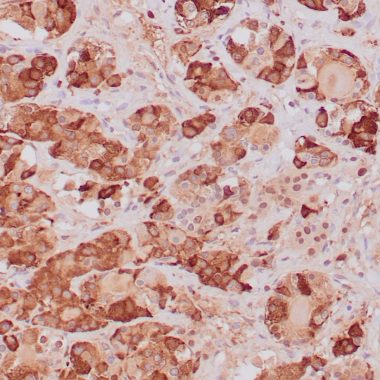The four human glycoprotein hormones chorionic gonadotropin (CG), luteinizing hormone (LH), follicle stimulating hormone (FSH), and thyroid stimulating hormone (TSH) are dimers consisting of alpha and beta subunits that are associated non-covalently. The alpha subunits of these hormones are identical; however, their beta chains are unique and confer biological specificity. TSH is synthesized and secreted by thyrotrope cells in the anterior pituitary gland which regulates the endocrine function of the thyroid gland. TSH stimulates the thyroid gland to secrete the hormones thyroxine (T4) and triiodothyronine (T3). TSH production is controlled by a Thyrotropin-Releasing Hormone (TRH), which is manufactured in the hypothalamus and transported to the pituitary gland, where it increases TSH production and release. Somatostatin is also produced by the hypothalamus and has an opposite effect on the pituitary production of TSH, decreasing or inhibiting its release. TSH is a useful marker in classification of pituitary tumors and the study of pituitary disease.

